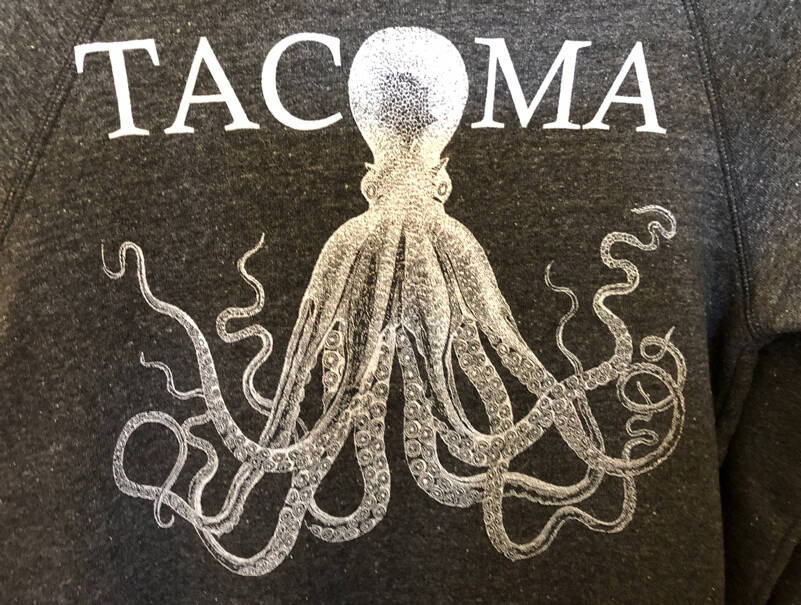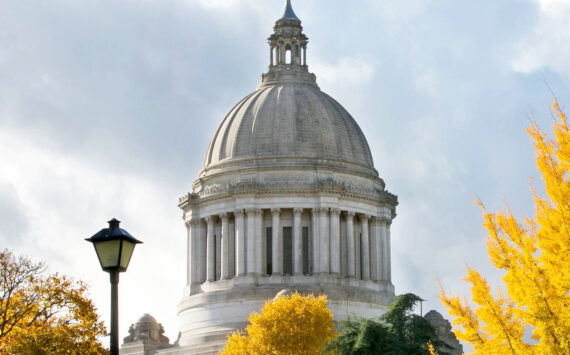By Morf Morford
Tacoma Daily Index
There’s an old saying that to be Jewish has little to do with faith or belief or even birth – it’s the ability to laugh and cry at the same time.
That might be a good set of skills for those of us who live within or identify ourselves as being from Tacoma.
Our self-declared moniker “City of Destiny” is as undefined as it is subject to interpretation.
The Aroma of Tacoma
The pulp mills that once lined and dominated Tacoma’s waterfront are long gone now, but the phrase “aroma of Tacoma” still lingers. The word “aroma” in any other context refers to an appealing, pleasant scent, but somehow, in association with Tacoma, the normally attractive meaning becomes negative.
An associated term from the same era is “The little town with the big stink”.
It’s difficult to imagine now, but there was a time when the atmosphere over Tacoma was a suffocating fog-like stench with a yellowish, metallic tinge to it.
Promoters of the extractive economy that established and for a few decades sustained Tacoma used to describe it as “the smell of money”.
And it was, for a few.
For most of us, and for generations to come, it was the smell of real estate values, business opportunities and our civic reputation disappearing in a column of smoke.
Actually it was many columns; what we now know as Ruston Way was dense with pulp mills, lumber yards and refining and processing plants gushing toxic smoke, waste and molten slag into our airways, waterways, yards and lungs.
Point Ruston, as beautiful as it currently is, sits on a peninsula entirely composed of lead and arsenic-laced slag from the ASARCO plant which once employed more than 1,300 workers on a regular basis.
More than 1,000 square miles of the south Puget Sound Basin was saturated by its waste for almost 100 years.
To see more on the legacy of the ASARCO smelter, look here: https://ecology.wa.gov/Spills-Cleanup/Contamination-cleanups/Cleanup-sites/Tacoma-smelter.
The Port of Tacoma once held rendering plants saturated in blood and animal remains and residue washed, on a daily basis, into the bay.
And overhead, and in every crevice and aching breath, unbreathable air.
I had a friend many years ago who worked in one of those rendering plants – ankle deep in a gelatinous ooze of blood.
Blood, soot, sweat and smoke once defined Tacoma.
Tacoma cleans up its act – sort of
When it comes to pollution, Tacoma has changed dramatically.
But the back-room deals and local corruption that made such a crude bargain for the rest of us was still in place.
Tacoma became a leader in police corruption and organized crime and as a result lost several historic landmarks from The Top of the Ocean to many one-of-a kind architectural masterpieces mostly due to arson, and became a murder and car theft capital of the country at various times.
We were also the home of several nationally known kidnappings.
Tacoma, for a few years, and in the eternal memories of some, became known as “the graveyard with lights” and even “the armpit of the Northwest”.
Oddly enough, Tacoma has also engendered a dedicated coterie of Tacoma history nerds – those of us who love the odd, neglected corners of our fair city -and its many contradictions.
Tacoma has world class parks and enviable public schools with a multitude of appealing programs few cities could even begin to offer.
Tacoma has lush green tree-lined neighborhoods, clusters of gorgeous Victorian homes and vintage bungalow craftsman houses.
Tacoma has stunning water, island and mountain views that any other city would be proud of – even if they only had one of them.
Pierce County, in terms of elevation, goes literally from sea-level to the highest point in the state.
And like our elevation, we in Tacoma reach for every extreme – from scruffy, sketchy, even dangerous, to elegant and artistic, we do it all.
And every extreme seems to hold its opposite at the next moment or unexpected encounter.
From The Java Jive to America’s Car museum to international eating establishments, Tacoma has every kind of eccentric, obsessive distraction anyone could want.
The Destiny
Destiny, by definition is unfinished.
Tacoma is, perhaps semi-intentionally, permanently in-process.
As we reach for that elusive spotlight, we are beset by petty (and not so petty) crime.
We seem to be forever in the not-yet stage.
Tacoma is a place, in many ways, still longing to be born, still brushing up against having its own voice and presence and finding itself in the shadows once more.
Whatever you think of Tacoma, it’s more than that. And probably, at the same time, much less.
Besides being able to laugh and cry at the same time, a true Tacoman has a deeply resonant ambiguity – a love/hate/fascination/disappointment with this strange place we, when no one is looking, call home.






